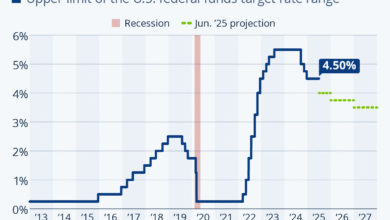Bitcoin Core Non-Financial Transactions Statement Explained

Bitcoin Core Non-Financial Transactions have gained significant attention in recent discussions surrounding the leading implementation of Bitcoin node software. In a bold move, Bitcoin Core recently shared its policy regarding these non-financial blockchain transactions, emphasizing the importance of maintaining Bitcoin’s censorship resistance. By advocating for the removal of OP_RETURN limits, the statement—signed by over 30 contributors—asserts that curtailing non-financial transaction relay is harmful to the integrity of the network. This approach highlights Bitcoin’s potential for use cases viewed as contentious by some, reinforcing the notion that it remains a versatile platform for diverse applications. As the debate unfolds, the community reflects on the balance between upholding Bitcoin’s foundational principles and navigating the complexities of its evolving ecosystem.
The recent discourse surrounding Bitcoin’s handling of transactions unrelated to financial exchanges, referred to as Bitcoin Core’s stance on non-financial applications, underscores a pivotal evolution in blockchain technology. This conversation encapsulates a variety of topics, including the broader implications of transaction regulations and the ethos of censorship resistance inherent in Bitcoin. Discussions have emerged around the implications of lifting restrictions on what some label as ‘spam,’ prompting various community reactions. By addressing the removal of OP_RETURN constraints, Bitcoin Core opens a dialogue on how these adjustments could redefine both user engagement and the interpretation of transaction purposes on the blockchain. As stakeholders weigh in, the ongoing narrative emphasizes the necessity for clarity and consensus as Bitcoin continues its journey through the digital landscape.
Understanding Bitcoin Core Non-Financial Transactions
Bitcoin Core’s recent statement highlights the ongoing debate surrounding non-financial transactions within the blockchain ecosystem. The focus lies on the implications of integrating what some might label as “spam” data into the Bitcoin network. By advocating for the removal of restrictions, Bitcoin Core positions itself as a proponent of censorship resistance, allowing various types of transactions to coexist within its platform. This policy initiative could potentially enhance the versatility of Bitcoin, thereby attracting a broader range of use cases.
As Bitcoin continues to evolve, the discussion around non-financial transactions illustrates a fundamental tension in how the community approaches the concept of decentralization. Proponents argue that allowing diverse transaction types fosters innovation and adaptability, essential traits for a system built on censorship resistance. Conversely, critics contend that such practices may clutter the network and detract from its primary financial objectives. It is crucial for stakeholders to understand these dynamics, as they could significantly influence Bitcoin’s long-term adoption and integrity.
The Impact of Bitcoin Core Policy Changes on Transaction Relay
The recent policy changes proposed by Bitcoin Core regarding transaction relay are set to reshape the operational landscape of the blockchain. By endorsing the inclusion of non-financial transactions, Bitcoin Core aims to broaden the spectrum of data that can be relayed through its network. This shift emphasizes the importance of transparency, where users have the ability to relay transactions that have significant value—even if purely informational—thus enhancing the user experience and contributing to the network’s robustness.
Furthermore, the potential for miners and users to collaborate directly underlines a decentralized ethos that Bitcoin champions. If users are empowered to relay transactions that haven’t passed through traditional channels, it may democratize access to the blockchain, effectively reducing the control that any single entity holds over data inclusion. This approach not only strengthens Bitcoin’s foundation as a censorship-resistant system but also invites further discussions on the ethical implications of transaction filtering within the blockchain community.
Censorship Resistance: A Cornerstone of Bitcoin’s Philosophy
At the heart of Bitcoin’s operational philosophy is the principle of censorship resistance. This quality is essential in ensuring that Bitcoin remains an open and inclusive platform, capable of supporting various use cases, even those that spark controversy. By firmly asserting that Bitcoin will be used for purposes that may not garner universal agreement, Bitcoin Core fosters a culture of inclusivity, allowing for innovative applications to emerge beyond traditional financial transactions.
The emphasis on censorship resistance also brings forth ethical considerations regarding the governance of the network. Many community members advocate for a purely decentralized approach, suggesting that restricting specific types of transactions could lead to an erosion of trust. It raises fundamental questions about who has the authority to define what constitutes acceptable use within the blockchain. As Bitcoin engages with these challenges, its community must navigate the fine line between protecting the network’s health and preserving its foundational values.
Reactions from the Bitcoin Community: Supporting and Criticizing Changes
The reactions to Bitcoin Core’s recent policy statement reveal the diverse perspectives within the Bitcoin community. Notable figures have emerged on both sides of the debate, with some advocating for the inclusion of non-financial transactions as a means to enrich the ecosystem. Voices like Juan Galt’s defend the idea that fostering an environment open to varied uses is crucial for Bitcoin’s evolution and resilience against censorship.
Conversely, detractors such as Samson Mow express concerns about the potential detrimental effects of incorporating what they label as “spam” within the blockchain. The controversy reflects broader tensions regarding the balance between innovation and operational integrity. As discourse continues, the Bitcoin community must grapple with how to align its values with practical governance mechanisms that sustain network effectiveness while honoring its commitment to decentralization.
Navigating the Future of Non-Financial Blockchain Transactions
As Bitcoin Core moves towards implementing changes in its policy on non-financial transactions, it opens the door to a future where blockchain can accommodate a wider array of uses beyond mere currency transfer. This shift could lead to the development of new applications that leverage the immutable properties of the blockchain for purposes such as data storage, identity verification, and even social media activity, thereby expanding the perceived utility of Bitcoin.
However, the transition will require careful navigation to avoid overwhelming the network’s capabilities or compromising its core financial functions. Stakeholders and developers must collaborate to find a balanced approach, creating guidelines that ensure the integrity of the blockchain while still being open to innovation. As the ecosystem evolves, the successful integration of non-financial transactions could redefine what it means to utilize a blockchain, positioning Bitcoin as not just a currency but a comprehensive infrastructure for digital interactions.
Implications of Lifting OP_RETURN Limits in Bitcoin Core
The ongoing discussions around lifting OP_RETURN limits have significant implications for the Bitcoin network. By enabling larger payloads for non-financial transactions, Bitcoin Core would grant developers the versatility to create a more complex and multifaceted ecosystem. This capability allows for more extensive data storage directly on the blockchain, thereby paving the way for innovative applications that can leverage the decentralized nature of Bitcoin.
However, this change will invoke scrutiny regarding the potential for misuse and spam within the network. Opponents argue that increasing the OP_RETURN limits could lead to congestion, ultimately undermining the efficiency of transaction processing. It is essential that while Bitcoin seeks to embrace broader use cases, it must also implement safeguards to maintain its integrity and performance capabilities, ensuring a balanced and efficient network for all users.
The Role of Developers in Shaping Bitcoin’s Transaction Policies
Developers play a critical role in the formulation and evolution of Bitcoin’s transaction policies. With over 30 contributors having signed the recent statement by Bitcoin Core, it is evident that a significant portion of the community supports the shift towards more inclusive transaction allowances. Developers are not only responsible for coding and software maintenance but also for engaging with the community to address concerns and optimize future functionalities.
The decisions made by developers regarding transaction policies reflect the understanding that Bitcoin must adapt to changing user needs and societal trends. As collaborations grow and diverse voices are heard, developers can craft policies that honor Bitcoin’s original values of decentralization and inclusivity, while also tackling practical concerns about network performance and security. Such efforts will be pivotal in ensuring that Bitcoin remains at the forefront of digital innovation.
Future Applications of Bitcoin Beyond Currency Transactions
As Bitcoin continues to develop, the potential for applications extending beyond currency transactions becomes increasingly evident. Non-financial uses of the blockchain, such as digital identity verification and supply chain management, could revolutionize industries by leveraging Bitcoin’s security and transparency. This growth signals a shift towards utilizing Bitcoin not only as a medium of exchange but also as a foundational technology for a multitude of applications.
By acknowledging the importance of non-financial transactions, Bitcoin Core opens the door for developers and businesses to explore innovative solutions that harness the unique features of blockchain technology. As organizations begin to recognize the far-reaching benefits of integrating Bitcoin into their operations, the network’s value proposition expands significantly, presenting promising opportunities for enhanced efficiency and data accuracy across various sectors.
Community Consensus on Bitcoin’s Evolving Policies
Achieving community consensus on Bitcoin’s evolving policies, particularly regarding non-financial transactions, poses a significant challenge. With differing opinions on what should be considered acceptable within the network, it’s vital for dialogue among stakeholders to remain open and constructive. This engagement is essential for navigating the complexities of transitioning towards a more inclusive transaction framework without sacrificing the core principles of decentralization and censorship resistance.
The Bitcoin community must work collectively to ensure that changes reflect the broader needs of its user base, fostering an environment of trust and collaboration. By prioritizing transparency and inclusivity, the community can reach consensus on policies that benefit both the integrity of the network and the diverse applications it supports. This balanced approach will be instrumental in guiding Bitcoin towards sustainable growth and adaptation in the coming years.
Frequently Asked Questions
What is Bitcoin Core’s stance on non-financial transactions in relation to its policy?
Bitcoin Core has released a statement emphasizing its support for non-financial transactions. The policy acknowledges that while it does not advocate for certain use cases, it recognizes Bitcoin’s nature as a censorship-resistant platform, allowing various transactions to occur, regardless of agreement among users.
How does Bitcoin Core address the concept of transaction relay for non-financial blockchain transactions?
Bitcoin Core has stated that restrictive practices on transaction relay for non-financial blockchain transactions undermine the intended goals of the project. They believe that such restrictions push users away from the main network, and maintaining a fair transaction relay process is crucial for overall network health.
What is the significance of the removal of OP_RETURN limits in Bitcoin Core’s policy on non-financial transactions?
Removing OP_RETURN limits is significant because it allows for greater flexibility in the inclusion of non-financial data within Bitcoin transactions. This aligns with Bitcoin Core’s dedication to censorship resistance, enabling users to incorporate diverse uses of the blockchain without arbitrary limitations.
What are some concerns regarding Bitcoin Core’s support for non-financial transactions?
Concerns raised within the Bitcoin community include the fear that increasing non-financial transactions could lead to blockchain ‘spam.’ Critics argue that allowing these transactions may detract from the primary financial use case of Bitcoin. However, supporters believe that prioritizing censorship resistance is vital for innovation and user freedom.
How do miners and users interact concerning the relay of non-financial transactions in Bitcoin Core?
According to Bitcoin Core, even if transaction relay restrictions are implemented, miners and users can work together directly to bypass these limitations. This interaction is crucial for preserving Bitcoin’s open and censorship-resistant nature, allowing all types of transactions to find their place on the blockchain.
What has the community reaction been to Bitcoin Core’s statement on non-financial transactions?
Reactions within the Bitcoin community have been mixed. Some, like Samson Mow, have criticized the statement as enabling blockchain spam, while others, such as Juan Galt, support the move, stating that it is aligned with Bitcoin’s fundamental principles of resistance to censorship.
Why does Bitcoin Core believe that non-financial transactions are part of its future?
Bitcoin Core asserts that as a censorship-resistant system, Bitcoin will inevitably be utilized for non-financial transactions, even if consensus on this perspective is not universal. They believe that supporting this aspect is in the best interest of Bitcoin and its users.
| Key Points |
|---|
| Bitcoin Core advocates for the removal of restrictions on non-financial transactions. |
| Over 30 contributors signed the statement supporting the stance against restrictive policies. |
| Bitcoin is recognized as a censorship-resistant system, allowing various use cases, including controversial ones. |
| The statement highlighted the importance of users circumventing restrictions to ensure transaction relay goals are met. |
| Mixed reactions emerged; some critiqued the allowance of ‘spam’ transactions while others defended openness in the network. |
| The Bitcoin community is divided on the issue, with potential implications for future governance and development. |
Summary
Bitcoin Core Non-Financial Transactions are an important topic of discussion in the cryptocurrency community. The recent statement from Bitcoin Core articulates a clear stance against restricting non-financial transactions, highlighting the project’s commitment to maintaining its censorship-resistant nature. With the backing of over 30 contributors, this policy change signals an openness to diverse use cases, despite ongoing debates within the community about the implications of such a move. Ultimately, the Bitcoin Core initiative aims to ensure that all types of transactions, including those not universally supported, can be appropriately handled within the network.




